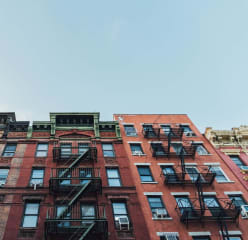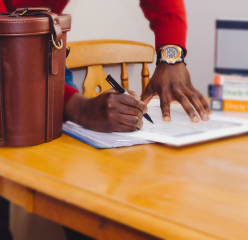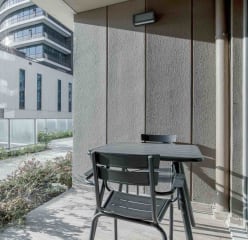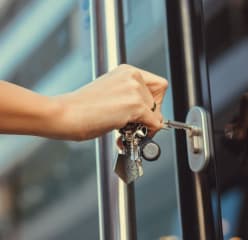Ensuring a security deposit is returned
If Your are a good tenant, then You’re guaranteed to get your security deposit returned. Know everything to make sure you are aware of your r…

Security deposits are a major expense involved in renting an apartment, as it’s typically one or two months’ rent. Naturally, when you pay a security deposit, you plan to get it back down the road. But what happens when you don’t get your entire security deposit returned?
So follow these tips to make sure you’re not left with an unexpected hole in your bank account at the end of your tenancy.
1. Set expectations
Before you even sign the lease for your new apartment, have a conversation with the landlord about expectations. Discuss the current state of the property, ask about any repairs or updates to be made before you move in, and get a feel for their general attitude.
Directly ask what the landlord expects from their tenants when it comes time to move out.

You want a landlord who takes property care seriously but isn’t overly fastidious. When you rent from someone like that, you could risk not getting your security deposit returned over a tiny scratch on the floor. It’s best to walk away before signing the lease if you have any doubts.
Better yet, have the terms and conditions surrounding the security deposit written into your rental agreement.
Also, your contract should outline the amount of the deposit when it should be paid to the landlord, when it should be returned and under what conditions part of the deposit can be withheld.
2. Do a walkthrough
On the first date of your lease, schedule a walk-through with the landlord. Take this opportunity to inspect every inch of the apartment, making sure to point out any damage or evidence of wear and tear that you find.
If there is anything that needs repairing, get a confirmation in writing from the landlord that they plan to fix it as soon as possible.
Here are a few things you should look out for:
- All the previous tenant’s personal items have been removed
- Floors, walls, and carpets are free from blemishes or stains
- Doors and windows open and close properly
- Kitchen and laundry appliances are in good condition
- Bathroom is free from mold or stains
- Faucets and plumbing work correctly
If possible, try to schedule a final walk through at the end of your lease as well.
Above all, it’ll make getting your security deposit returned much quicker if you can get the landlord’s approval in person.
3. Take pictures
If you want to get your security deposit returned, the best insurance policy is to take pictures before moving in and upon moving out. These will act as legitimate proof if there are any disagreements over damage once your lease has ended.

Try to take photos during the walk-through at the beginning and end of your lease, making sure to include a timestamp. Keep multiple copies of the photos in safe places, such as on your computer, hard drive, and phone.
If one breaks down, you’ll still have a backup on hand.
4. Respect the property
Security deposits exist for a reason, so remember to take care of the apartment during your lease as if it were your own. Be mindful of who you invite into your home as you’ll be financially responsible for their behavior should anything happen.
As a general rule, it’s best to refrain from throwing large parties or hosting paid overnight guests through platforms like Airbnb.
So avoid putting holes in the wall; instead, opt for stick-on hooks to hang art.
You can also add felt protectors to the bottoms of chair legs to prevent them from scraping the floor.
No one’s perfect. If you do cause any damage during your tenancy, be honest and inform your landlord right away. You’ll have to pay for any damage you cause, but taking care of it sooner will avoid further damage causing a more expensive repair.
5. Keep things clean
Everyone knows that the best way to make sure you get your security deposit returned is to leave the place spotless. Some tenants even hire a professional cleaning service to conduct a move-out deep clean upon their departure.

But if you wait until the end of your lease to get the place back in shape, it’s too late.
Regular cleanings are essential to prevent long-term damage. Pay special attention to the kitchen and bathroom, where mold and water damage can leave permanent marks.
6. Leave your contact information
Landlords typically need a few days or longer to evaluate the property and return your security deposit.
By then, you’ll have already moved on to your new place. Make sure your former landlord has updated contact information, such as your phone number and email address, so they can efficiently return your security deposit.
It’s a good idea to leave your new address as well – although hopefully, you’ll have already set up mail forwarding before your move!
7. Know your tenant rights
Most of the time, as long as you’ve been a respectful tenant, you shouldn’t have any issue getting your security deposit returned. But issues can arise from time to time so be prepared.
If you find yourself having difficulty getting your security deposit back, make sure you know your rights as a tenant. They differ from state to state, so you’ll have to research the laws that are specific to your area.
Here’s a general idea to get you started:
- The landlord has a limited amount of time to return the security deposit back to you, usually two weeks to two months depending on the state
- Normal wear and tear from gentle use, such as faded carpets, cannot be deducted from the security deposit
- Any deductions that are made from the security deposit should be backed up with receipts for parts and labor
- Some states require the security deposit to be kept in a separate bank account, and the tenant is entitled to the interest accrued on the amount
One final thing to keep in mind is that many landlords are individuals who only rent one unit and don’t have much experience as a landlord. They might not be familiar with the laws regarding rentals. Don’t be afraid to educate your landlord on tenant rights in your city if you feel you’re not getting what you’re owed.
If possible, it’s a good idea to rent from a professional company that has a lot of experience with tenants and will always respect your rights.
Above all, rental companies often have dedicated staff to make sure your security deposit is returned on time.
For example, Blueground is a furnished and equipped rental company with apartments all over the world. They automatically include a move-out cleaning in your rent price, so you won’t have to worry about hidden fees or scrubbing anything down when you leave.








